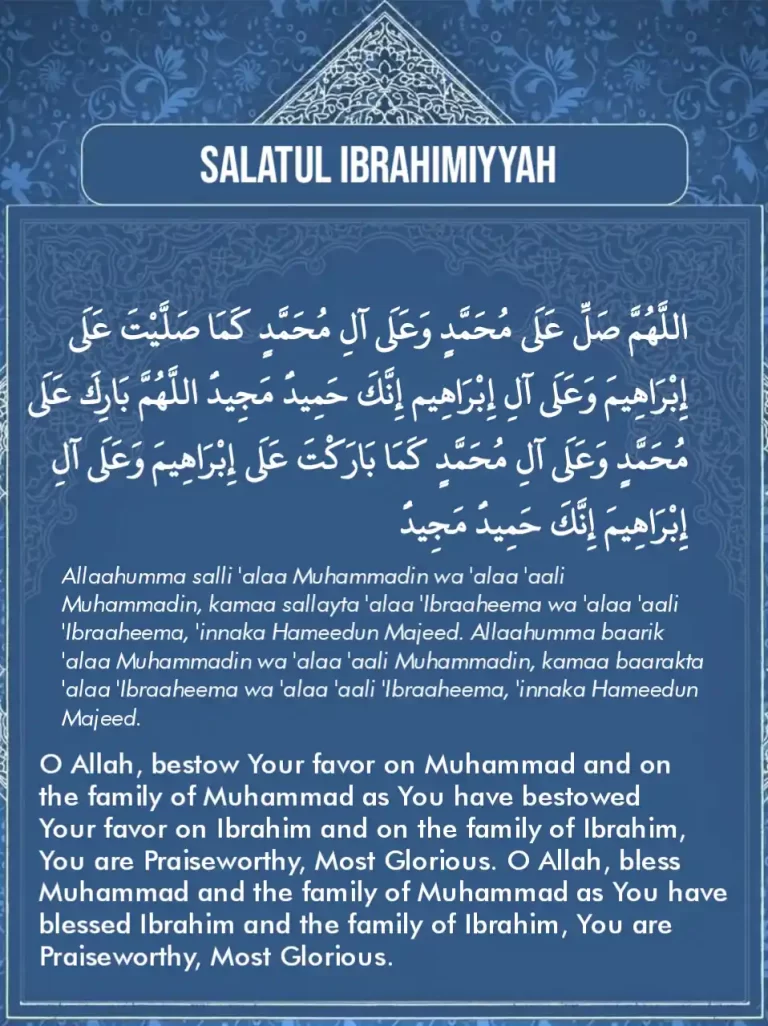Mashallah Meaning In English, Arabic Text And Pronounciation
Advertisements
Mashallah, also written Masha’Allah is an Arabic phrase that is used to express a feeling of awe or beauty regarding an event or person that was just mentioned. It is a common expression used by Muslims and Arabs.
In this article, we will be looking at mashallah meaning in English, how to write it in Arabic, its usage and benefits from Quran and Sunnah.
Mashallah Meaning In English
The Arabic phrase Mashallah means what Allah has willed has happened. The most accurate way of representing the phrase in transliteration is ma sha Allah, which means, “What God has willed has happened.
Mashallah is often used to express gratitude for something good that has happened to a person. It’s a way for Muslims to show respect and serves as a reminder that everything happens by the will of Allah.
It is a way for us to acknowledge that Allah, the Creator of all things, has blessed us. This owe can be expressed by saying Mashallah.
Advertisements
MashAllah In Arabic
The correct way to write mashallah in Arabic is
مَا شَاءَ ٱللَّٰهُ
Mashallah Pronunciation
Alhamdulillah Mashallah in Arabic
Alhamdulillah and Mashallah is written in Arabic as
الحمدلله مَا شَاءَ ٱللَّٰهُ
What Does Mashallah Mean In The Quran?
MashAllah means what Allah willed has occurred. It is mentioned in Surah Kahf, verse 39. That is, the believer said to his disbelieving companion:
Advertisements
Although you boasted to me about your great wealth and many children, and you see that I have less wealth than you and fewer children, that which is with Allah is better and more lasting, and what is hoped for of His goodness and kindness is superior to everything in this world for which people compete.
Masha Allah Ayat In Quran
وَلَوۡلَآ إِذۡ دَخَلۡتَ جَنَّتَكَ قُلۡتَ مَا شَآءَ ٱللَّهُ لَا قُوَّةَ إِلَّا بِٱللَّهِۚ إِن تَرَنِ أَنَا۠ أَقَلَّ مِنكَ مَالًا وَوَلَدًا
Meaning In English
And why did you, when you entered your garden, not say, ‘What Allah willed [has occurred]; there is no power except in Allah’? Although you see me less than you in wealth and children.
Surah Kahf Verse 39
Imam Ibn Kathir said that here, the man was urging and encouraging him to say that, as if he was saying,
“When you entered your garden and looked at it and liked it, why wouldn’t you praise Allah for the blessings He gave you and the wealth and children that He has given to you and not to others! Why did you not say `That which Allah wills! There is no power but with Allah!”‘
One of the Salaf said,
“Whoever is delighted with something in his circumstances or his wealth or his children, let him say, `That which Allah wills! There is no power but with Allah!”‘
When To Say Mashallah?
MashaAllah is said when someone adore you or something beautiful an pleasant with you. It can also be said and used to congratulate someone. It is a reminder that although the person is being congratulated, ultimately Allaj willed it.
Some cultures believe that saying Masha Allah will protect them from jealousy, the evil eye, or a jinn.
Shaykh Ibn Uthaymeen said If a person sees that which amazes (pleases) him, pertaining to his wealth, then he should say Maashaa Allah Laa Quwwata illa billah, just as in the story of the companion of the two gardens, when his companion said to him:
It was better for you to say, when you entered your garden: That which Allah wills there is no power except with Allah. This is if he sees something amazing (pleasing) with his wealth.
If he sees it in other than himself then he should say Barakallahu Alaihi (May Allah bless it for him) or a statement similar to it.
What is Mashallah Reply?
There is no one right reply to someone who says Mashallah to you. But since they are saying it an a way to share in your joy, accomplishment, or achievement or someone adore you, then you can replu by saying Jazak Allahu Khayran. Jazakallah is a Dua for him which means: May Allah reward you.
- Check Out Other Islamic Phrases
- Alhamdulillah Meaning
- Subhanallah Meaning
Do You Say Mashallah or Tabarakallah?
Masha Allah and Tabarakallah have similar meanings. Tabarakallah is an Arabic word which means may Allah bless whereas Masha Allah means what Allah has willed.
However, according to Sheik Ibn Uthaimeen, if person sees that which amazes (pleases) him, pertaining to his wealth, then he should say Maashaa Allah Laa Quwwata illa billah, just as in the story of the companion of the two gardens in surah Kahf.
Tabarakallah is said when a person sees what amazes him in other than himself then he should say Barakallahu Alaihi (May Allah bless it for him) or a statement similar to it.
Inshallah Mashallah Meaning
Inshallah and Mashallah have similar sound definitions, which is why it’s easy to get confused between the Mashallah and Inshallah. The main difference is inshallah is said to wish for a future result:
- Masha Allah means Allah has willed
- In sha Allah means if Allah wills it.
MashAllah In Hadith
Hudhaifah bin Yaman said: The Prophet SAW said, “Say not: ‘What Allah wills and so-and-so wills’, but say: ‘What Allah wills, and then what so-and-so wills’”
Abu Dawud with authentic Isnad. Reference: Al-Adab Al-Mufrad 783 In-book reference: Book 33, Hadith 30
Imam Annawawi, may Allah shower blessings on him, said in his book, Riyaadus-Saaliheen: The chapter on abomination of saying what Allah wills and so-and-so wills.
The abomination here signifies prohibition. That is, if you say: ‘What Allah wills and what so-and-so wills,’ or ‘what Allah wills and you will,’ or other similar statements.
This is because the word ‘Wa (and)’ indicates equality of the two parts. When you say, ‘What Allah wills and so-and-so wills,’ it is as if you have made so-and-so equal to Allah in His Will.
The Absolute Will belongs to Allah, the Exalted, alone; He does whatever He wills. However, as the Prophet SAW had prohibited this expression, he guided to a permissible statement.
He SAW said: “…but say ‘What Allah wills, and then what so-and-so wills.” This is because the word ‘Thumma (then)’ signifies a sequential arrangement; that is, the will of Allah is above the will of so-and-so.
Likewise, this applies in the saying: ‘What Allah wills and you will’.
A man said to the Prophet SAW: ‘What Allah wills and you will.’ The Prophet SAW said: ‘Are you making me a partner to Allah?’ as a way of rebuking him, ‘Rather say: ‘What Allah alone wills.’
This is the sequential arrangements.
The first level is for someone to say: What Allah alone wills. This statement entails surrendering all affairs to Allah – the Mighty and Sublime.
The Muslims agree on it; hence, their saying: ‘What Allah wills will be and what He does not will, will not be.’
The second level is for someone to say: ‘What Allah wills, and then what so and so wills’. This is permissible.
The Prophet SAW permitted it and guided to it.
The third level is to say: ‘What Allah wills and so and so wills.’ This is prohibited and not permissible.
This statement means that one has made the creature equal to the Creator in His Will.
The fourth is to say: ‘What Allah wills and then what so and so wills,’ but with the letter Fa. This is a matter of contention because Fa also denotes ordering but it is not like Thumma (then).
This is because Thumma indicates the sequence of events but this (Fa) does not necessarily indicate a definite sequence.
Hence, it is a complex issue, and the Prophet SAW did not guide to it for this reason.
The hadeeth also contains evidence that when a person mentions what is not permissible to people, he should explain what is permissible to them.
The Prophet SAW said: “Do not say, what Allah wills and so and so wills. But say, what Allah wills then what so-and-so wills”.
This should be the manner of the one who teaches people. Whenever he shows them the doors of prohibition, he should also open doors of permissibility for them.
In this way, people will move from the former to the latter. Some people would mention prohibited matters, stating the forbidden without explaining the permissible options.
This is shutting the doors on them without opening the alternative doors.
Adopted from Explanation Of Riyadus Saliheen.
Advertisements








2 Comments